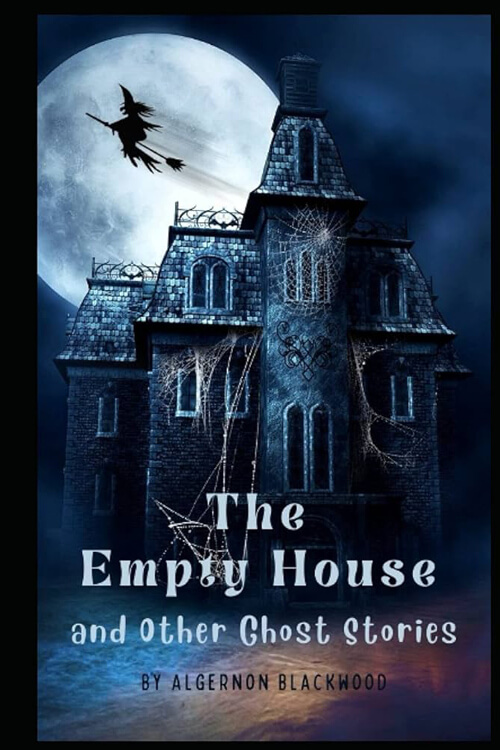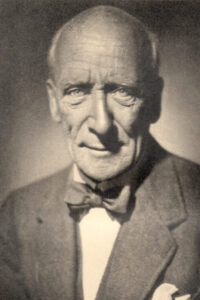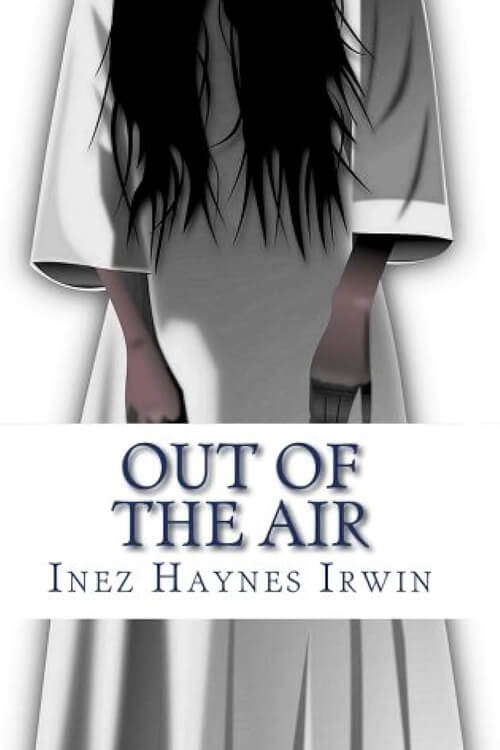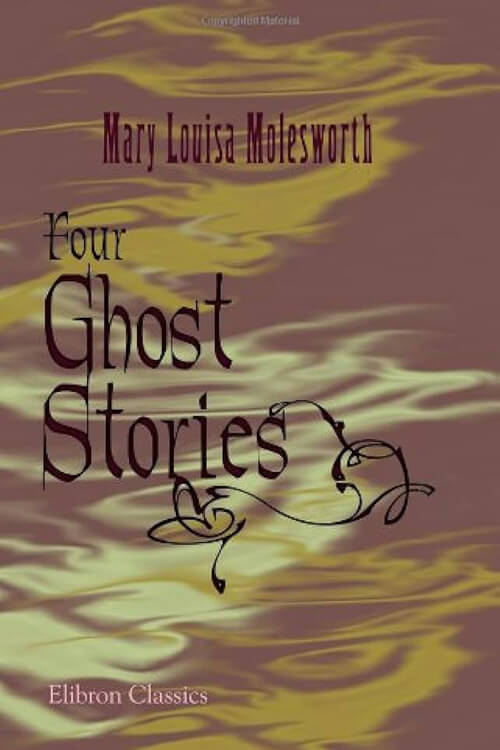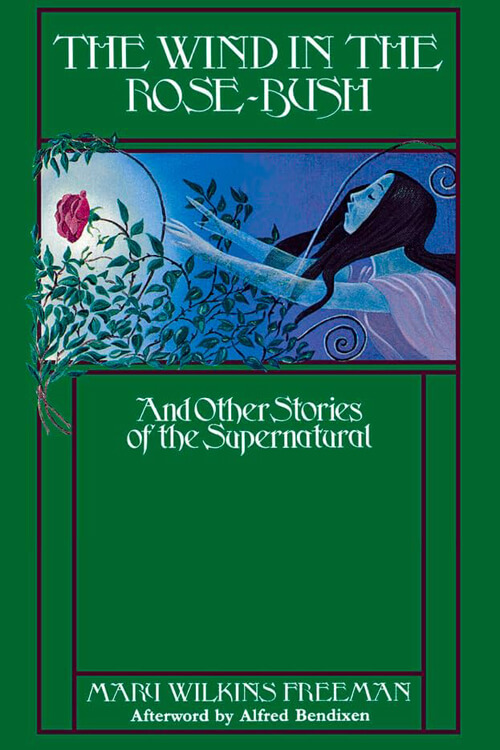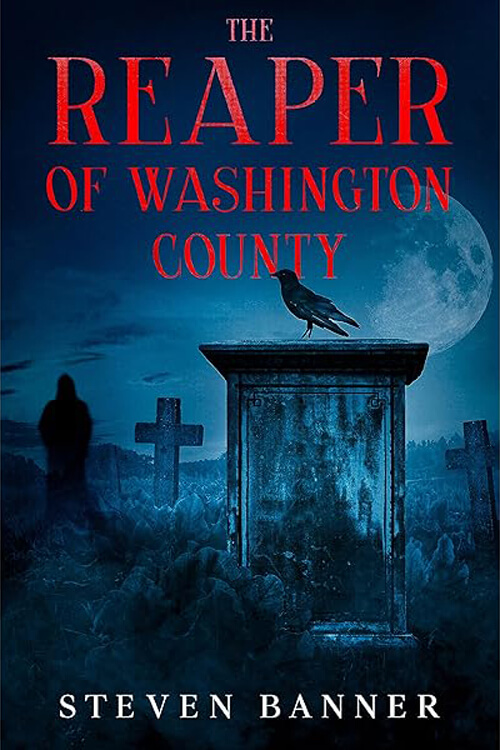
The Empty House and Other Ghost Stories
Certain houses, like certain persons, manage somehow to proclaim at once their character for evil. In the case of the latter, no particular feature need betray them; they may boast an open countenance and an ingenuous smile; and yet a little of their company leaves the unalterable conviction that there is something radically amiss with their being: that they are evil. Willy nilly, they seem to communicate an atmosphere of secret and wicked thoughts which makes those in their immediate neighborhood shrink from them as from a thing diseased.
And, perhaps, with houses the same principle is operative, and it is the aroma of evil deeds committed under a particular roof, long after the actual doers have passed away, that makes the gooseflesh come and the hair rise. Something of the original passion of the evil-doer, and the horror felt by his victim, enters the heart of the innocent watcher, and he becomes suddenly conscious of tingling nerves, creeping skin, and a chilling of the blood. He is terror-stricken without apparent cause.
There was manifestly nothing in the external appearance of this particular house to bear out the tales of the horror that was said to reign within. It was neither lonely nor unkempt. It stood, crowded into a corner of the square, and looked exactly like the houses on either side of it. It had the same number of windows as its neighbours; the same balcony overlooking the gardens; the same white steps leading up to the heavy black front door; and, in the rear, there was the same narrow strip of green, with neat box borders, running up to the wall that divided it from the backs of the adjoining houses. Too, the number of chimney pots on the roof was the same; the breadth and angle of the eaves; and even the height of the dirty area railings.
And yet this house in the square, which seemed precisely similar to its fifty ugly neighbors, was entirely different—different.
Wherein lay this marked, invisible difference is impossible to say. It cannot be ascribed wholly to the imagination, because persons who had spent some time in the house, knowing nothing of the facts, had declared positively that certain rooms were so disagreeable they would rather die than enter them again, and that the atmosphere of the whole house produced in them symptoms of a genuine terror; while the series of innocent tenants who had tried to live in it and been forced to decamp at the shortest possible notice, was indeed little less than a scandal in the town.
When Shorthouse arrived to pay a “week-end” visit to his Aunt Julia in her little house on the seafront at the other end of the town, he found her charged to the brim with mystery and excitement. He had only received her telegram that morning, and he had come anticipating boredom; but the moment he touched her hand and kissed her apple-skin wrinkled cheek, he caught the first wave of her electrical condition. The impression deepened when he learned that there were to be no other visitors and that he had been telegraphed for with a very special object.
Something was in the wind, and the “something” would doubtless bear fruit; for this elderly spinster aunt, with a mania for psychical research, had brains as well as willpower, and by hook or by crook she usually managed to accomplish her ends. The revelation was made soon after tea when she sidled close up to him as they paced slowly along the seafront in the dusk.
Read or download Book
Algernon Blackwood
Algernon Henry Blackwood, CBE (14 March 1869 – 10 December 1951) was an English broadcasting narrator, journalist, novelist, and short story writer, and among the most prolific ghost story writers in the history of the genre. The literary critic S. T. Joshi stated, “His work is more consistently meritorious than any weird writer’s except Dunsany’s” and that his short story collection Incredible Adventures (1914) “may be the premier weird collection of this or any other century”.
Life and work
Blackwood was born in Shooter’s Hill (now part of southeast London, then part of northwest Kent). Between 1871 and 1880, he lived at Crayford Manor House, Crayford and he was educated at Wellington College. His father, Sir Stevenson Arthur Blackwood, was a Post Office administrator; his mother, Harriet Dobbs, was the widow of the 6th Duke of Manchester. According to Peter Penzoldt, his father, “though not devoid of genuine good-heartedness, had appallingly narrow religious ideas.” After Algernon read the work of a Hindu sage left behind at his parent’s house, he developed an interest in Buddhism and other Eastern philosophies. Blackwood had a varied career, working as a dairy farmer in Canada, where he also operated a hotel for six months, as a newspaper reporter in New York City, bartender, model, journalist for The New York Times, private secretary, businessman, and violin teacher. During his time in Canada, he also became one of the founding members of the Toronto Theosophical Society in February 1891.
Throughout his adult life, he was an occasional essayist for periodicals. In his late thirties, he moved back to England and started to write stories of the supernatural. He was successful, writing at least ten original collections of short stories and later telling them on radio and television. He also wrote 14 novels, several children’s books, and several plays, most of which were produced, but not published. He was an avid lover of nature and the outdoors, as many of his stories reflect. To satisfy his interest in the supernatural, he joined The Ghost Club. He never married; according to his friends, he was a loner, but also cheerful company.
Jack Sullivan stated that “Blackwood’s life parallels his work more neatly than perhaps that of any other ghost story writer. Like his lonely but fundamentally optimistic protagonists, he was a combination of mystic and outdoorsman; when he wasn’t steeping himself in occultism, including Rosicrucianism, or Buddhism he was likely to be skiing or mountain climbing.” Blackwood was a member of one of the factions of the Hermetic Order of the Golden Dawn, as was his contemporary Arthur Machen. Cabalistic themes influence his novel The Human Chord.
His two best-known stories are probably “The Willows” and “The Wendigo”. He would also often write stories for newspapers at short notice, with the result that he was unsure exactly how many short stories he had written and there is no sure total. Though Blackwood wrote many horror stories, his most typical work seeks less to frighten than to induce a sense of awe. Good examples are the novels The Centaur, which reaches a climax with a traveler’s sight of a herd of mythical creatures; and Julius LeVallon and its sequel The Bright Messenger, which deal with reincarnation and the possibility of a new, mystical evolution of human consciousness. In correspondence with Peter Penzoldt, Blackwood wrote.

